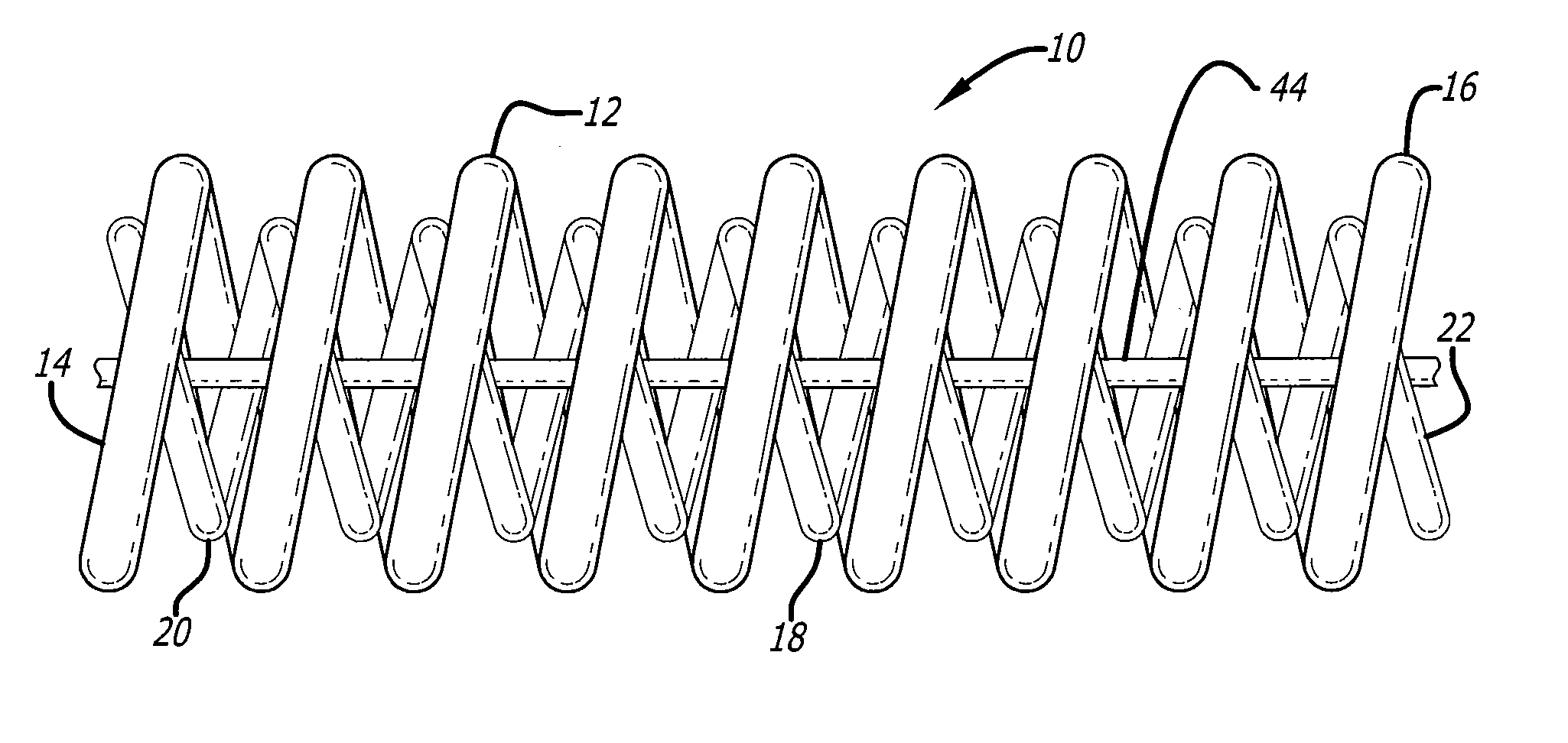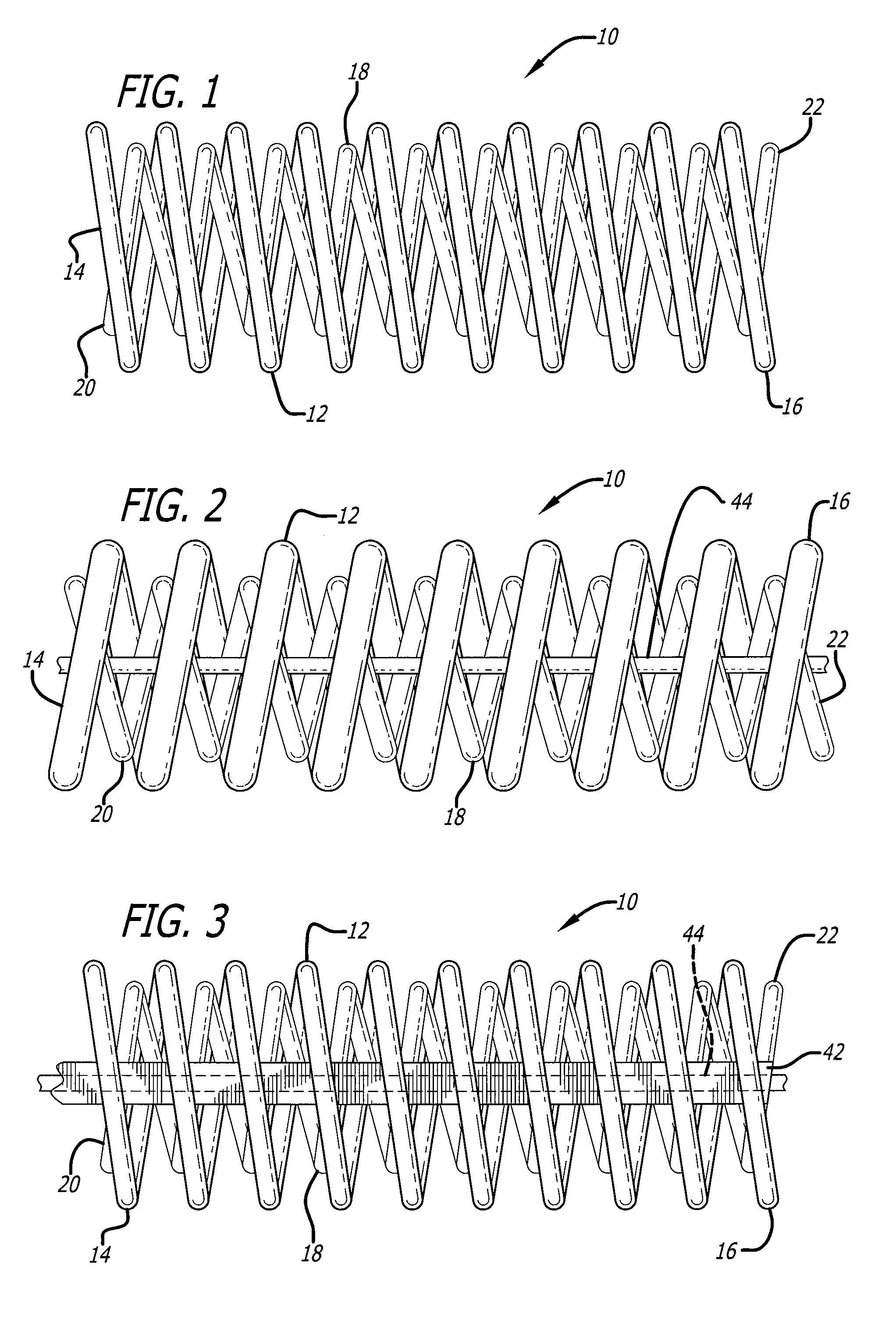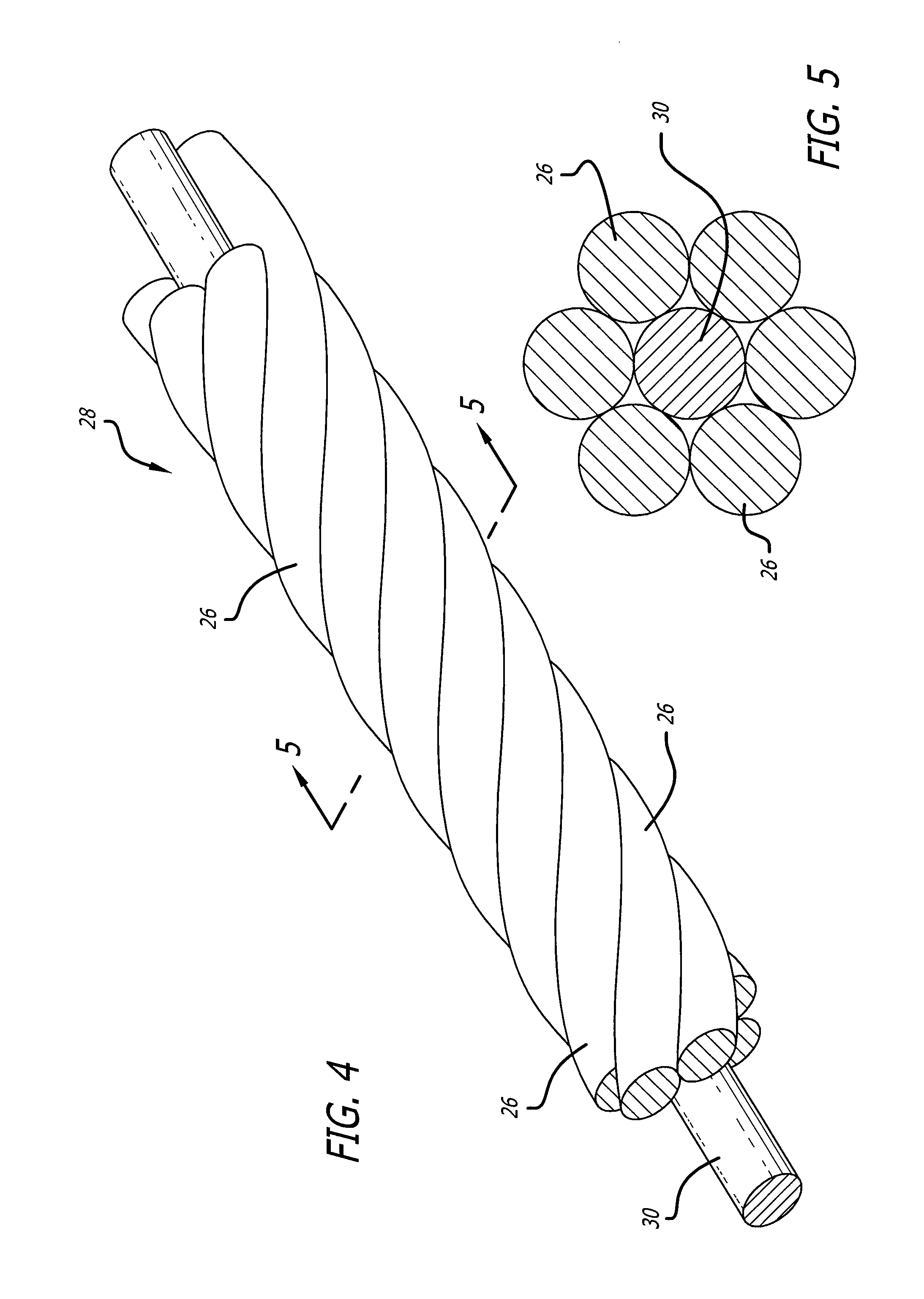Vasoocclusive coil with biplex windings to improve mechanical properties
a vasoocclusive coil and coil technology, applied in the field of vasoocclusive coil improvement, can solve the problems of inherently more difficult, inability to treat or accept unacceptable risks, and inability to align the coil within the catheter, so as to improve the mechanical properties of the coil
- Summary
- Abstract
- Description
- Claims
- Application Information
AI Technical Summary
Benefits of technology
Problems solved by technology
Method used
Image
Examples
Embodiment Construction
[0028]While nickel-titanium alloys are useful in forming super-elastic or shape memory interventional devices, micro-coils formed of very small diameter wires of nickel-titanium alloy material for treatment of areas of the small diameter vasculature such as an artery or vein in the brain, for treatment of aneurysms and the like, for example, can have relatively low yield strengths and are somewhat subject to kinking, even if made of super-elastic alloy. This can create problems during placement and if the coil is to be withdrawn after being emplaced by the doctor, as for instance, if the device is too small to effectively fill the cavity to be treated. Furthermore, even solid wires of a size suitable for use in interventional devices are not very radiopaque.
[0029]As is illustrated in the drawings, which are provided for the purposes of illustration and not by way of limitation, the invention is embodied in a micro-coil formed of at least one flexible strand of a resilient material h...
PUM
 Login to View More
Login to View More Abstract
Description
Claims
Application Information
 Login to View More
Login to View More - R&D
- Intellectual Property
- Life Sciences
- Materials
- Tech Scout
- Unparalleled Data Quality
- Higher Quality Content
- 60% Fewer Hallucinations
Browse by: Latest US Patents, China's latest patents, Technical Efficacy Thesaurus, Application Domain, Technology Topic, Popular Technical Reports.
© 2025 PatSnap. All rights reserved.Legal|Privacy policy|Modern Slavery Act Transparency Statement|Sitemap|About US| Contact US: help@patsnap.com



